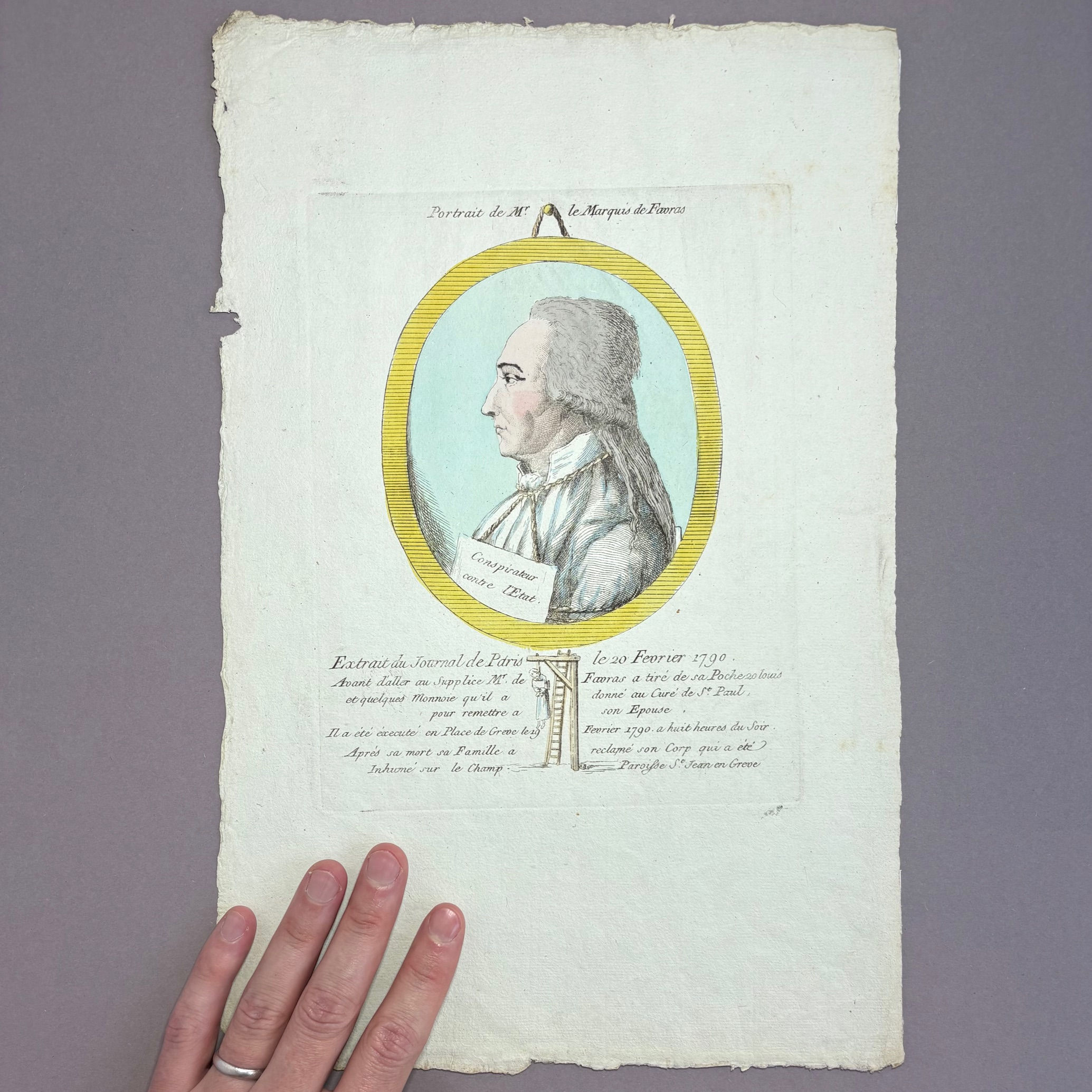Patron saint of orthography pedants goes to the gallows. Rare.
[Marquis de Favras] / [Famous last words] / [Bad spelling]. Portrait de Mr. le Marquis de Favras. Extrait du Journal de Paris le 20 fevrier 1790. Avant d’aller au Supplice Mr de Favras a tiré de sa Poche 20 louis et quelques Monnoie qu’il a donné au curé de St. Paul pour remettre a son Epouse. Il a été éxecuté en Place de Greve le 19 fevrier 1790 a huit heures du Soir. Après sa mort sa Famille a reclamé son Corp qui a été Inhumé sur le Champ Paroisse St. Jean en Greve. S.l. [likely Paris]: s.n., s.a. [likely 1790]. [39.0 x 25.4 the sheet, 23.0 x 18.0 cm the platemark], [1] f. etching, with original hand-color. Deckle edges intact, very minor staining, flaw at left edge, remnants of mounting on verso, colors still fresh and bright.
Rare separately issued, hand-colored etching commemorating the hanging on 19 February 1790 of the Royalist Thomas de Mahy, Marquis de Favras (1744-90). The Marquis de Favras became legendary for the remarks he supposedly made after being shown his death warrant: “You have made, sir, three mistakes in spelling” (“Vous avez fait, Monsieur, trois fautes d’orthographe”).
Killjoy historians in later times noted that Favras likely did not utter these words but that they were derived from Victor Hugo’s portrayal of the Marquis in his play Marion Delorme (act IV, scene VII).
The print relays a report from the Journal de Paris that nevertheless suggests that the Marquis de Favras did in fact possess some sangfroid. It states that on his way to the gallows he took 20 louis from his pocket and gave them the curate of St. Paul to give to his wife.
I locate examples of this print at the Bibliothèque nationale de France (De Vinck, 3535; Hennin, 10640) and the Musée Carnavalet (inv. no G.42282).
*E. Fournier, L’esprit dans l’histoire recherches et curiosités sur les mots historiques, p. 397; E. Latham, Famous Sayings and Their Authors A Collection of Historical Sayings in English, French, German, Greek, Italian, and Latin, p. 187; M. Lecoq, Conspiration du marquis de Favras, 1789-1790; E. Freiherrn von Stillfried-Ratènic, Thomas de Mahy, Marquis de Favras und seine Gemahlin: Ein Beitrag zur Geschichte der französischen Revolution aus den Jahren 1789-1790, von deren Enkel Eduard Freiherrn von Stillfried-Ratènic.
